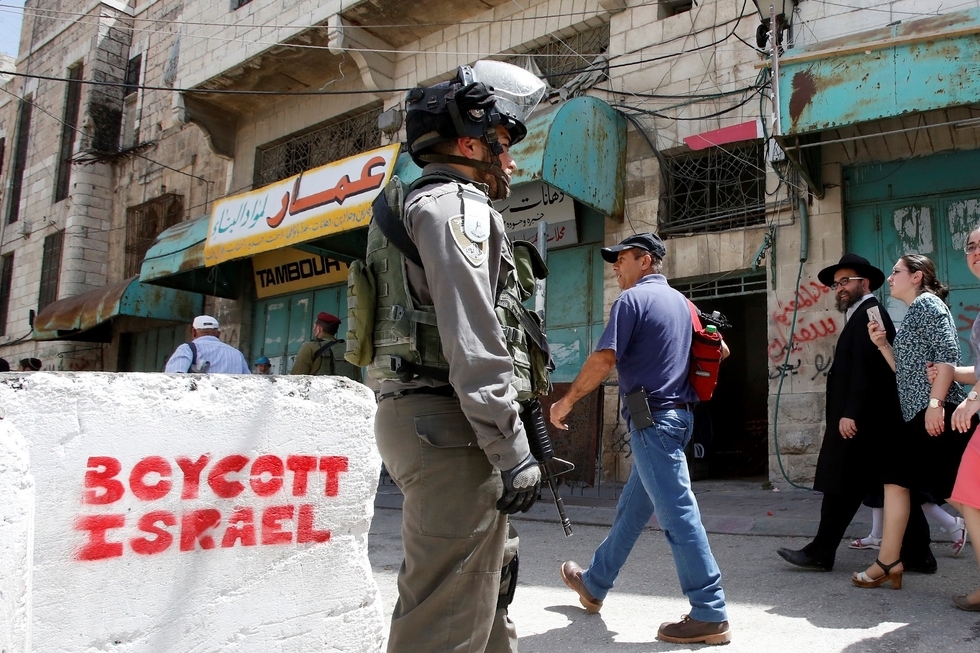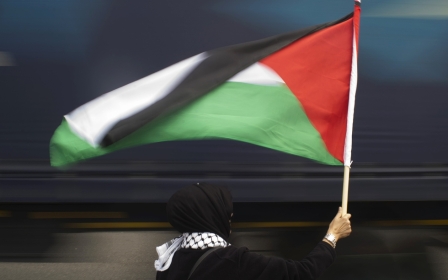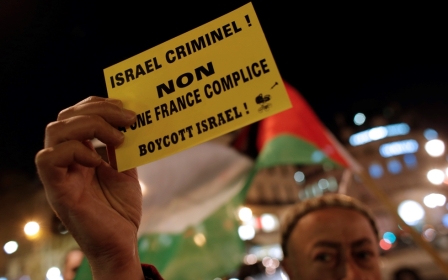Israel revokes HRW country director's work permit over claims of BDS support

Israeli authorities have revoked the work permit of international NGO Human Rights Watch’s (HRW) Israel and Palestine director, giving him two weeks to leave the country, the organisation said on Tuesday.
Omar Shakir, who has been working for HRW in Israel and the occupied Palestinian territory since April last year, saw the American NGO expert’s permit revoked on Monday over his alleged support of the Boycott, Divestment and Sanctions (BDS) movement against Israel.
“This is the first time since Human Rights Watch began monitoring Israel and the Occupied Territories 30 years ago that Israel has ordered one of its staff out of the country,” Iain Levine, deputy executive director for programme at Human Rights Watch, said in a statement. “But it’s only the latest among many recent examples of Israel’s growing intolerance of those who criticize its human rights record.”
HRW added that Israeli authorities had opened an investigation in November looking into Shakir’s “activities in the boycott field” over more than a decade based on a private lawsuit challenging his obtention of a work permit.
While HRW documents human rights violations committed by both Israeli and Palestinian actors in Israel and the occupied territory, it has never advocated in support of BDS.
The interior ministry’s decision on Monday acknowledged that “no information has surfaced regarding such (boycott) activities” since Shakir joined HRW, according to the organisation, it nonetheless decided to abide by a December recommendation from the Strategic Affairs and Public Diplomacy Ministry to strip Shakir of his visa and ban him from re-entering Israel in the future.
“Human Rights Watch stands fully behind Shakir and has retained counsel to challenge the decision before an Israeli court,” the NGO said in its statement.
Fifteen Israeli human rights organisations - including B’Tselem, the Association for Civil Rights in Israel (ACRI), and Rabbis for Human Rights - issued a statement in support of Shakir on Wednesday.
“Israel is trying to keep both its own citizens and the world from seeing what it is doing,” the statement read. “Neither closing the borders to human rights groups and activists nor other Israeli measures against organisations critical of the occupation will deter us - or them - from reporting human rights violations in areas under Israeli control.
“Rather than trying to hide the occupation from the world - end the occupation.”
Monday’s decision comes within a broader Israeli crackdown on pro-Palestinian activists and foreigners seen as supporting the Palestinian cause.
The 2011 Boycott Law paved the way for lawsuits to be levied against individuals and entities, whether Israeli or foreign, pushing forward a boycott of Israel.
In 2017, Israel’s parliament, the Knesset, passed a law allowing authorities to ban entry into the Israel - and by extension all occupied Palestinian territory, as their borders fall under Israeli control - to foreigners deemed to be activists in support of BDS.
HRW itself has previously been targeted by the Israeli government, as the organisation was accused by the ministry of interior in 2017 of having “engaged in politics in the service of Palestinian propaganda, while falsely raising the banner of ‘human rights’”.
The non-violent BDS movement seeks to replicate the boycott of the South African apartheid regime by applying economic pressure on the Israeli government to dispense with its discriminatory policies targeting Palestinians.
Stay informed with MEE's newsletters
Sign up to get the latest alerts, insights and analysis, starting with Turkey Unpacked
Middle East Eye delivers independent and unrivalled coverage and analysis of the Middle East, North Africa and beyond. To learn more about republishing this content and the associated fees, please fill out this form. More about MEE can be found here.




